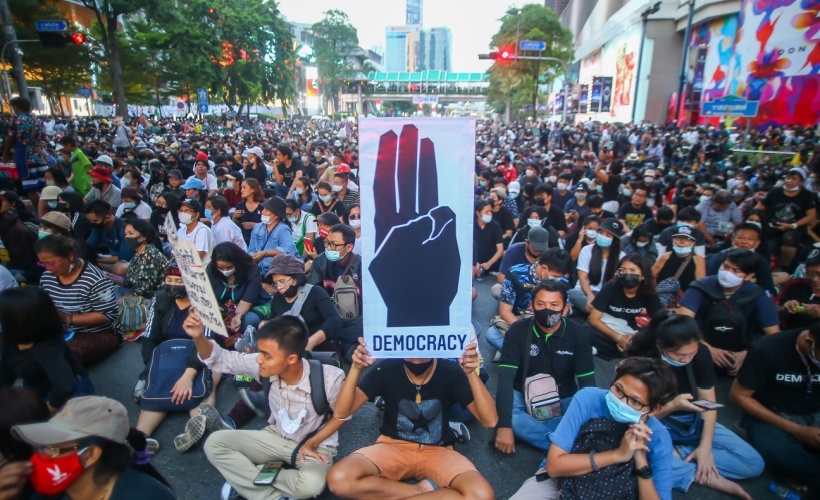The Indo-Pacific Roundtable 2023, Panel 1
The Indo-Pacific is incredibly vulnerable to the effects of climate change, with the United Nations estimating that by 2050, this region could have up to 89 million people made climate refugees, with increasing average temperatures resulting in heat waves, alongside other extreme weather events in the form of flooding and droughts. These environmental emergencies and their impacts are already present. However, environmental governance and conservation measures also produce emergencies of their own, with issues arising in the form of geopolitical conflicts with large-scale transboundary projects, as well as the perpetuation of environmental injustice at the community level, where local conflicts with national and international conservation measures may emerge. Bringing together panellists with a range of expertise across the Indo-Pacific, this panel will discuss the various dimensions of these environmental emergencies from the international, state, and local levels, addressing the region-specific challenges of negative environmental impacts and their mitigation.
Panellists:
• Dr Liana Chua, University of Cambridge
• Dr Mari Mulyani, University of Oxford
• Prof Heike Schroeder, University of East Anglia
• Dr Alexander Cullen, University of Cambridge
Moderated by: Dr Alisa Santikarn, Centre for Geopolitics
More about the speakers:
Liana Chua is a social anthropologist with research interests in ethnic politics, indigeneity, religious conversion, resettlement and environmental change in Malaysian Borneo, where she has worked with rural Bidayuh communities since 2003. She currently leads The Global Lives of the Orangutan project (ERC), a multi-sited exploration of the social, political and aesthetic dimensions of the global nexus of orangutan conservation in the age of ‘the Anthropocene’.
Mari Mulyani secured her D.Phil from the School of Geography and the Environment, University of Oxford, with a thesis on climate change mitigation policy focusing on REDD+ institutions. Mari developed and runs an elective module on ‘ASEAN Environments’ for Masters’ courses within this School. It explores the complex interplay between the principles of ASEAN (the Association of Southeast Asian Nations), politics, society, natural resources, and environmental governance. Specifically, this module explores the political dynamics amongst policy actors and the underlying path dependence of the member States’ political economy that governs the region’s environment and biodiversity. Mari also teaches Philosophy of Science, Employing Social Theories in Research Practice, and Theories of Governance. She supervises Masters students on dissertations relating to environmental governance and institutions, including topics on community-based conservation, environmental justice and equity, indigenous people knowledge and local community rights, transboundary resource management, deforestation, forest fires and haze pollution, illegal wildlife trade, and human-wildlife conflicts. Her research interests span broadly around these issues.
Heike Schroeder is Professor of Environmental Governance at the School of International Development, University of East Anglia. Her work focuses on global environmental politics, forest governance, the international climate negotiations, indigenous peoples/knowledge and sustainable development, trust and sustainable food governance. She was PI of the GCRR/ESRC-funded Indigenous-International Interactions for Sustainable Development (INDIS) project. She has held previous positions at the University of California, Santa Barbara and Oxford.
Alexander Cullen is a human geographer that primarily examines issues of livelihood transitions, territoriality and environmental subjectivity through a political ecology lens. His research has been attentive to state – community tensions in relation to land rights and post-conflict conservation governance across Southeast Asia, but with particular interest in Timor-Leste. Prior to joining Cambridge University, Dr Cullen was a Lecturer at the School of Geography at the University of Melbourne, where he also completed his PhD. He is also an experienced international development practitioner, having worked broadly across issues including local governance, land conflict, microfinance and public transport in Southeast Asia.







